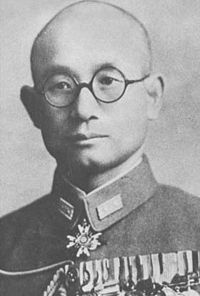Masanobu Tsuji Military person
Masanobu Tsuji (辻 政信, Tsuji Masanobu, 11 October 1901 – ca.1961) was a tactician of the Imperial Japanese Army during the Second World War and later a politician. He was responsible for developing the detailed operational plans that allowed for the successful Japanese invasion of Malaya at the outbreak of the war. He would also go on to take part in planning the final offensive during the closing stages of the Guadalcanal campaign. While he was never indicted for war crimes after World War II, subsequent investigations have revealed that he was involved in or contributed to the execution of various war crimes throughout the Pacific war including the massacre of Chinese civilians in Singapore, the mistreatment and executions of prisoners of war during the Bataan Death March, the executions of captured government officials of the Philippines, and other war crimes in China. Masanobu Tsuji was regarded as the most notorious Japanese war criminal to escape trial after the war. He was a leading proponent of the concept of gekokujō, "leading from below" or "loyal insubordination" by acting without or contrary to authorization
Search
Military person
| allegiance | Empire of Japan |
|---|---|
| military operations | |
| military branch | |
| service start | 1924 |
| service end | 1945 |
